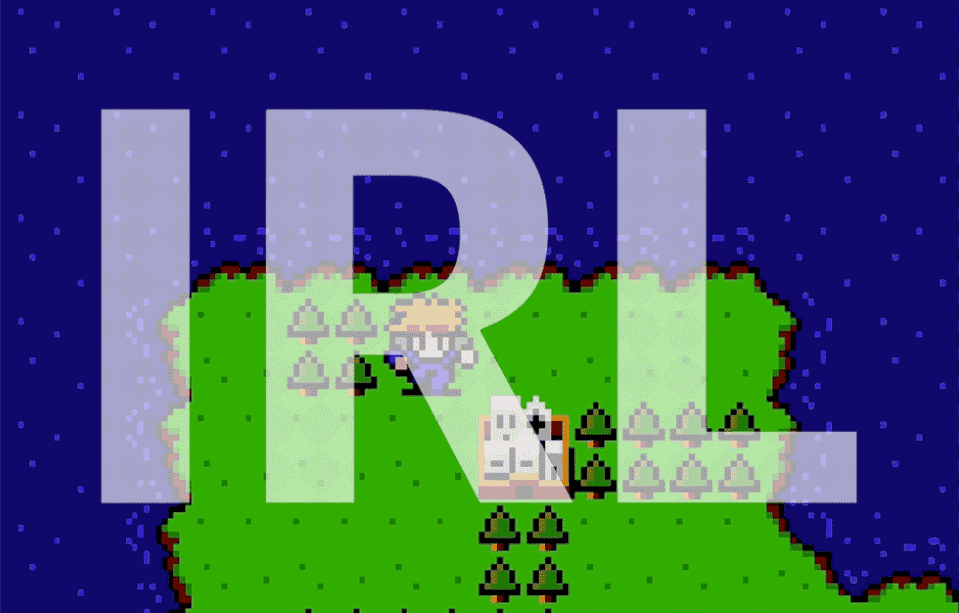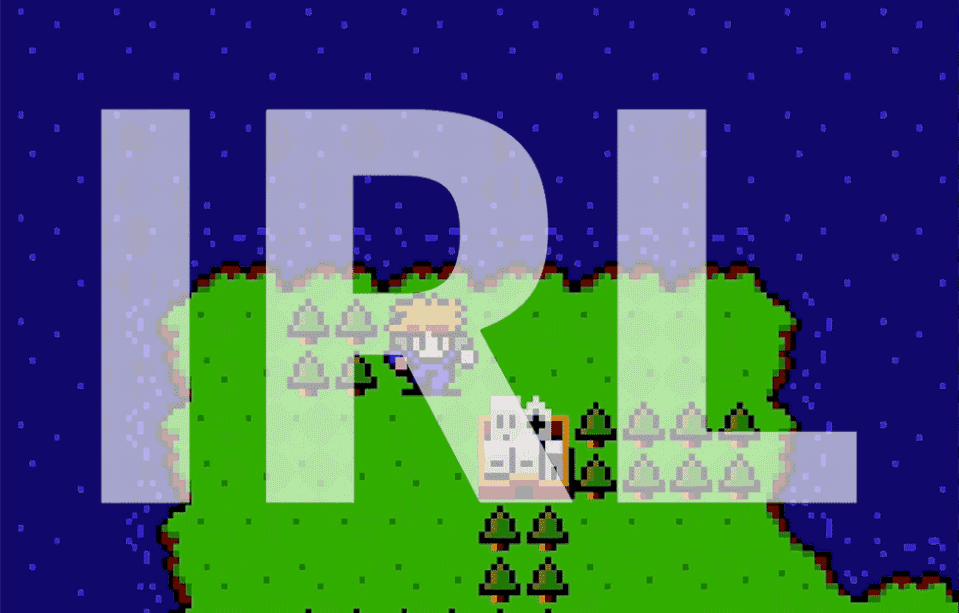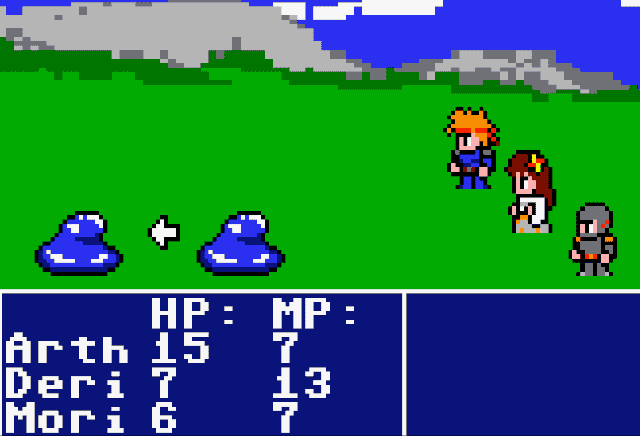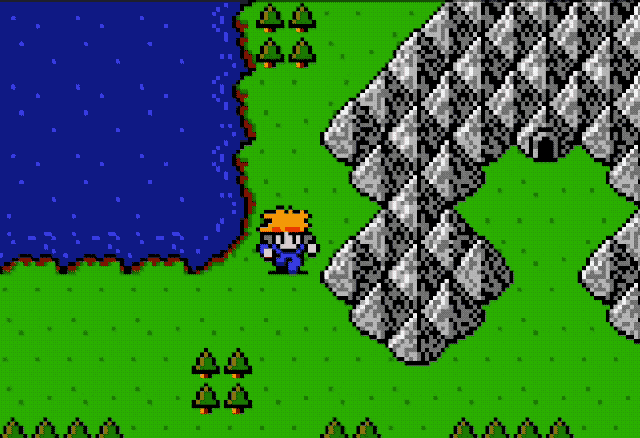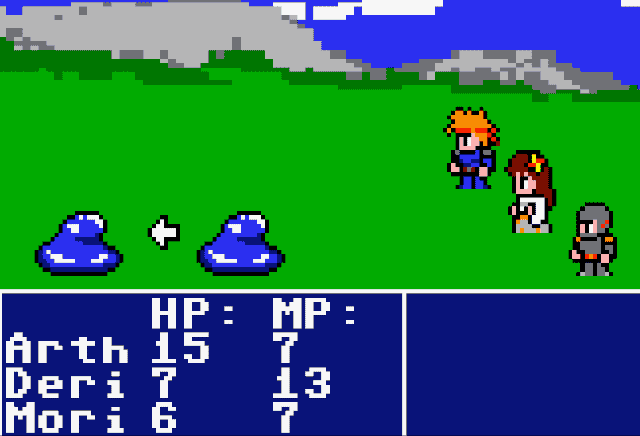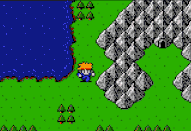What we're playing: A new Atari Lynx game in 2018
'Wyvern Tales' is a labor of love.
This week on IRL, we're taking a break from the norm. It's a poorly kept secret that our managing editor, James Trew, has an Atari Lynx fetish. At last count, he owned seven of the things, not to mention every game ever made for them. But while Atari officially abandoned the Lynx way back in the '90s, that hasn't stopped creative types from producing new games for the system. Wyvern Tales is one such game, a labor of love by a solo developer that took eight years to build from scratch. It's the Lynx's first JRPG, and according to James, it's pretty impressive. Let's get weird.

James Trew
Managing Editor
Still waiting for Half Life 3? I can empathize. New material for the 30-year old Atari Lynx is (understandably) rare, but fans of the original color hand-held are a patient bunch. The trickle of content we do get is often barely more than a playable demo or a simple puzzle game. Wyvern Tales, created single-handedly by Jasper van Turnhout (under his Nomad Studio imprint) is the rarest of beasts: a new Lynx game with -- gasp! -- hours of play, a storyline, strategy and cute '90s-era graphics. You scoff, but this is a big deal for the hundred(s?) of people like me who refuse to let the Lynx die.
Wyvern Tales is special for a few more reasons. For one, it's an RPG, which means it plugs a decades-long hole in the Lynx's (already limited) library.
"A lot of games on the Lynx are arcade ports or have timers involved to increase the challenge, but I was missing a game that you can pick up, fool around a bit and save your progress, like some of the JRPGs that I've been playing throughout my life." Van Turnhout told Engadget. "Having played games such as Lufia and Dragon Warrior on the Game Boy Color, I thought that the Lynx could have a game like this as well."
While everyone else was enjoying platform-specific versions of Sonic or Super Mario, Lynx owners were stuck with conversions of old coin swallowers like Ms. Pac-Man and Robotron 2084. The nearest thing we had to a "mascot" was probably the ruddy kid in Scrapyard Dog. Fantasy and RPG/adventure games were even rarer.
There's a version of Gauntlet, a Bill and Ted's game that's weirdly close to an RPG (and terribly off-theme, but an Excellent Adventure nonetheless), Dracula that has some related gameplay elements, the frustratingly incomplete Daemons Gate and a rare-as-rocking-horse-shit version of Eye of the Beholder. But nothing you can easily get hold of and really get lost in, until now.
Wyvern Tales is, for want of a better description, a Final Fantasy clone. It features three intrepid warriors -- Arth, Deri and Mori -- on a quest to beat the Trial of Gods. Each of our heroes has different strengths, with Arth as the leader, Deri as the magician and Mori as something of an all-rounder. The game is set on the island of Trials, whose inhabitants live in fear of an oppressive overlord and --whaddyaknow? -- are too scared to do anything about it. Could your band of merry misfits be the ones to save them?
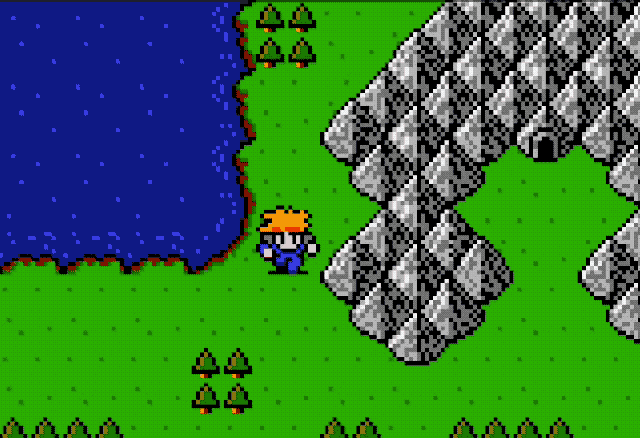
Those of us around during the early '90s will remember consoles rarely had a way to save progress. For the Lynx and its hodgepodge library of button-mashers, this mostly wasn't an issue: Codes were used to restart later levels. But for a JRPG-style game, like Wyvern Tales, it's essential. Fortunately, technology has moved on enough that Van Turnhout was able to add a save chip right into the homemade cartridges, allowing this game to exist not just in emulation, but on the original hardware.
For purists (like me), this is what it's all about. I can play almost any game from any '90s console on my PC, or even my phone, but you can never beat the feeling of sliding in a cartridge, firing up the console and hearing the intro music as nature intended (through a mangled, old, not very good speaker). Add to that Wyvern Tales' era-accurate Zelda-style graphics and it's a heady combination.
The adventure starts in the village of Gonnos. Here we learn where to find our first trial on the path to appeasing the Goddess (and achieving immortality for 1,000 years). If you've played any retro JRPG, everything in Gonnos will be familiar. The town has a few traders willing to buy or sell you weapons and potions, local residents offering cryptic advice, and a sacred statue that will restore your crew's health and magical power. Unlike modern games, though (thankfully) there's no hint of an in-app purchase or infernal interstitial ads for Sausage Run.
Once you leave the safety of a village, though, you're basically on your own. Walk around the map looking for your next task, and you'll eventually encounter baddies. If you spent your gold wisely in the last town, you should have enough potions and magic to help you through. The adversaries you meet increase in number and difficulty. Defeat them and you'll be rewarded with XP and cash (and maybe some equipment). Rinse and repeat (scuttling back to the village for health) until you level up enough to edge out a little further on the map or onto the next town and challenge.
Van Turnhout's clearly a dedicated fan of the genre. Wyvern Tales took eight years to develop from start to finish. Not because it's incredibly deep -- gameplay is double-digit hours at best -- but because programming games for the Lynx is hard. It offers little in the way of reward and it's never anything more than a labor of love. To release a game on physical cartridge, complete with box and manual is even more involved (though easier now thanks to one other Lynx developer that's cracked a method that's economically viable).
As you tread deeper into the game, the mechanic is simple. Complete your task, normally slaying a boss, and move onto the next. There are some puzzle/strategy elements, and a side task here and there to add life to the game once you've completed the Trial of Gods (and saved the impotent locals). Modern gamers might find this all somewhat linear, but for fans of the Lynx, it's cathartic. I can't tell you why I chose the Lynx over the Game Boy or Game Gear, but I can tell you we finally got the cutesy JRPG we deserved. It just took 30 years.
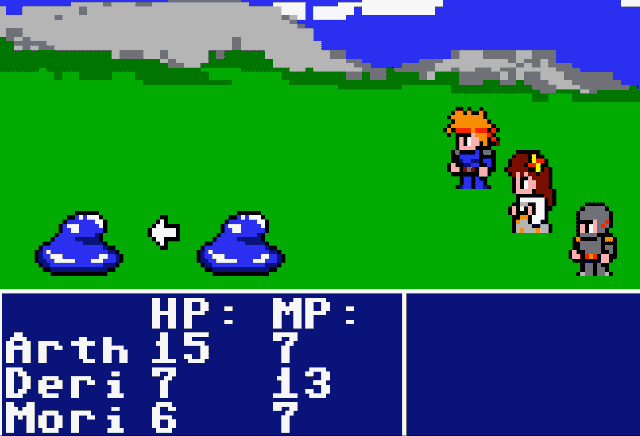
If you still own a Lynx and are actively using it, you probably already know about Wyvern Tales. There's not a whole lot of news to keep up with. But if you didn't, or if you have the hand-held stashed away in storage, the game only recently went on sale (though I was lucky enough to get early access as a beta tester).
Buying a Lynx game in 2018 isn't a simple task, though -- almost as challenging as the Trial of Gods itself. You'll need to head to this forum thread, sign up on the list and wait your turn. Wyvern Tales will also cost you some gold. At over $50, it's a thoroughly modern price for a retro game, but given the hours Van Turnhout has clearly poured into this, it's money well spent.
Whatever the reward, his expectations are modest. "Because of the limited runs and the high production costs I can't say I'm making a good amount of money. If it all sells well, I'll probably try to use the money to plan a trip to Japan to pay my respect."
"IRL" is a recurring column in which the Engadget staff run down what they're buying, using, playing and streaming.
